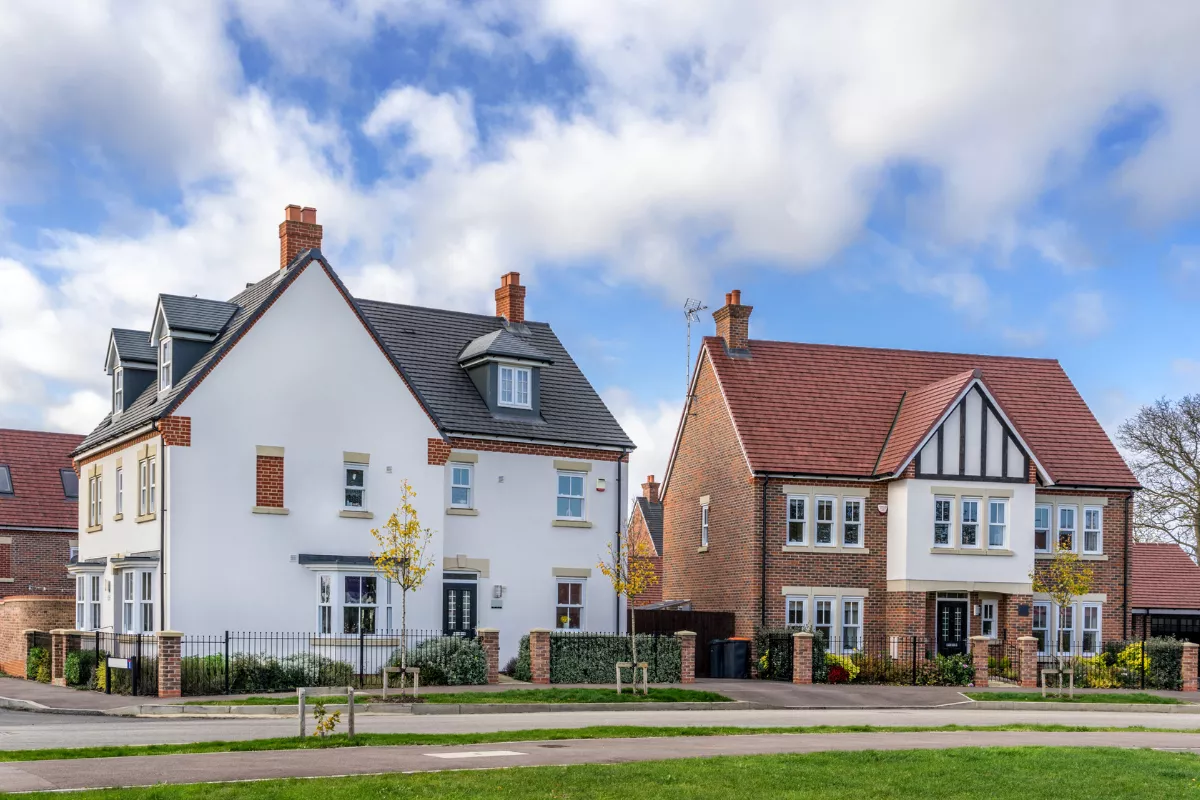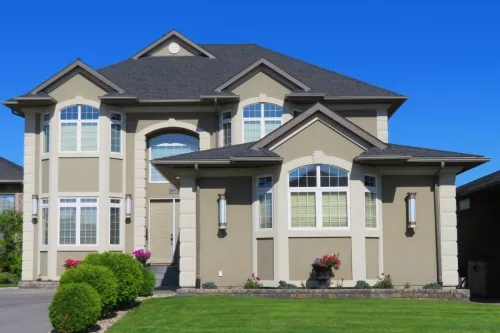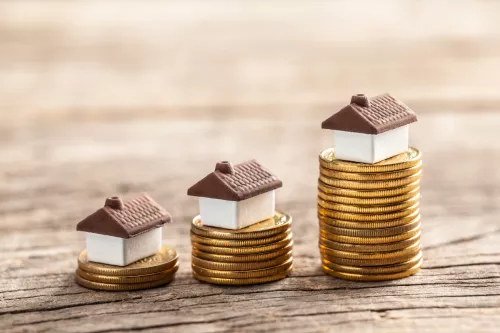When exploring affordable housing options, you might come across HUD homes — properties owned by the U.S. Department of Housing and Urban Development (HUD). These homes present unique opportunities for potential buyers but come with specific considerations.
As real estate experts, we will help you understand what a HUD home is, who qualifies to buy one, and the advantages and disadvantages involved. Read on to learn the impact of HUD on homeownership as well as whether buying a HUD home is a good investment.
What is HUD and How Does It Work?
HUD, or the U.S. Department of Housing and Urban Development, is a government agency established in 1965 to create strong, sustainable, inclusive communities and quality affordable homes for all. H
UD operates programs that provide housing assistance, enforce fair housing laws, and support homeownership through initiatives like FHA-insured mortgages. When a homeowner defaults on an FHA loan, HUD pays the lender and takes ownership of the property, which then becomes a HUD home available for sale.
HUD Impact on Homeownership
HUD's role extends beyond selling homes; it significantly impacts homeownership rates and community development across the U.S.
HUD homes contribute to neighborhood stability and revitalization, encouraging homeownership and reducing vacant properties through programs like Dollar Homes and Good Neighbor Next Door.
Through partnerships with local governments and nonprofits, HUD ensures that more people have access to affordable housing, benefiting low-income families, first-time homebuyers, and public service professionals.
What is a HUD Home?
A HUD home is a residential property acquired by the U.S. Department of Housing and Urban Development (HUD) after a foreclosure on an FHA-insured mortgage. When a homeowner defaults on an FHA loan, the lender forecloses on the property and HUD compensates the lender for the loss.
Subsequently, HUD takes ownership of the property and lists it for sale to recoup the financial loss from the defaulted loan. These homes are often sold below market value, making them an attractive option for budget-conscious buyers.
Ownership and Purpose
HUD acquires these properties through foreclosure on FHA-insured loans. The primary purpose of selling HUD homes is to recover the financial loss from the defaulted loan. By doing so, HUD can maintain the stability of the FHA insurance fund, which supports low-income and first-time homebuyers.
Who Qualifies to Buy a HUD Home?
Buying a HUD home is not limited to a specific group of people. Various buyers, including owner-occupants, investors, and certain nonprofits, can purchase these properties, often with specific advantages.
Qualifications and Eligibility
- Owner-Occupants: Individuals who intend to live in the home as their primary residence.
- Investors: Can purchase HUD homes after the initial offering period for owner-occupants.
- Nonprofits and Government Agencies: May qualify for special programs and discounts.
Special Programs
HUD offers specific programs to encourage homeownership and support community revitalization:
- Good Neighbor Next Door: Provides discounts for teachers, law enforcement officers, firefighters, and EMTs.
- Dollar Homes: Offers properties to local governments for $1, aiming to improve community housing conditions.
Advantages of Buying a HUD Home
HUD homes can be a compelling option for buyers due to several key advantages. As real estate experts, we can highlight the primary benefits that make these properties attractive:
Affordability
Lower Purchase Price:
HUD homes are often sold below market value. Since HUD’s objective is to recoup the loss from the defaulted loan, they price homes competitively. This makes HUD homes a budget-friendly option, particularly appealing to first-time homebuyers and those with limited financial resources.
Potential for Equity:
Buying a property below market value can provide immediate home equity. This means the buyer might own a home worth more than they paid, providing financial leverage for future investments or loans.
Less Competition
Owner-Occupant Priority:
HUD gives priority to owner-occupants during the initial offering period, typically the first 30 days the home is listed. This reduces competition from investors and increases the chances of securing a property for those intending to live in it.
Reduced Bidding Wars:
The priority period for owner-occupants helps mitigate bidding wars, making the buying process less stressful and more accessible for individuals and families looking for a primary residence.
Assistance Programs
Good Neighbor Next Door Program:
This program offers significant discounts (up to 50% off the list price) to teachers, law enforcement officers, firefighters, and EMTs. The goal is to promote community stability by encouraging public servants to live in the communities they serve.
Dollar Homes Program:
Local governments can purchase homes for $1 to improve community housing conditions. These homes can then be resold to low- and moderate-income families, creating affordable housing opportunities.
Financial Incentives:
HUD provides various financial assistance options, such as the FHA 203(k) loan, which helps buyers finance both the purchase and renovation of the property. This can be especially beneficial for homes that require significant repairs.
Investment Opportunities
Potential for High Returns:
Investors can benefit from buying HUD homes at a lower cost, making them potentially lucrative investments. After the initial owner-occupant period, these properties become available to investors who can renovate and resell or rent them out.
Community Revitalization:
Purchasing and renovating HUD homes contribute to the revitalization of neighborhoods. This can increase property values over time, benefiting both individual investors and the broader community.
Disadvantages of Buying a HUD Home
While HUD homes offer several benefits, they also come with potential drawbacks. It’s essential to be aware of these disadvantages before making a decision.
Property Condition
Sold "As-Is":
One of the most significant drawbacks of buying a HUD home is that they are sold "as-is”. This means that HUD will not make any repairs before the sale. Buyers must be prepared to handle any issues, which can range from minor cosmetic updates to major structural repairs.
Potential for Significant Repairs:
Many HUD homes have been vacant for some time, leading to potential issues such as plumbing problems, electrical faults, or even mold. The cost of these repairs can add up quickly, making the initial low purchase price less attractive.
Inspection Responsibility:
Buyers are responsible for conducting their home inspections and should be prepared to invest in a thorough home inspection to uncover any hidden problems.
Financing Challenges
Complex Financing:
Obtaining financing for a HUD home can be more complex, especially if the property requires substantial repairs. Traditional mortgage lenders may be hesitant to finance homes in poor condition.
Specialized Loans Needed:
Buyers might need to explore specialized loan programs, such as the FHA 203(k) rehabilitation loan, which combines the mortgage and renovation costs into a single loan. However, these loans come with their own set of requirements and paperwork, adding to the complexity of the purchase.
Limited Inspection and Negotiation
Short Inspection Period:
HUD typically allows a limited time for inspections, often 10-15 days. This short window can make it challenging to thoroughly assess the property’s condition and obtain estimates for necessary repairs.
As-Is Sale Terms:
Because HUD homes are sold as-is, there is little room for negotiation on the price or terms of the sale based on the inspection findings. Buyers must be prepared to accept the property in its current state, with all its flaws.
No Seller Concessions:
Unlike traditional sales where sellers might offer concessions, such as paying closing costs or providing a home warranty, HUD does not provide these benefits. Buyers must cover all closing costs and repairs themselves.
Is Buying a HUD Home a Good Investment?
Buying a HUD home can be a good investment due to the lower purchase price, which often provides instant equity. The affordability makes it accessible for first-time buyers and investors. However, the need for significant repairs and the complexities of financing can be drawbacks.
The value of HUD homes can also be affected by local real estate market conditions, impacting long-term investment potential. Overall, the decision to invest in a HUD home should consider the immediate costs and long-term benefits, along with individual financial circumstances.
The Bottom Line
HUD homes offer a unique opportunity for affordable homeownership, especially for those willing to invest time and money into repairs. While there are potential challenges, the benefits and assistance programs provided by HUD can make these properties a viable option for many buyers.

 Marcio Vasconcelos
Marcio Vasconcelos





